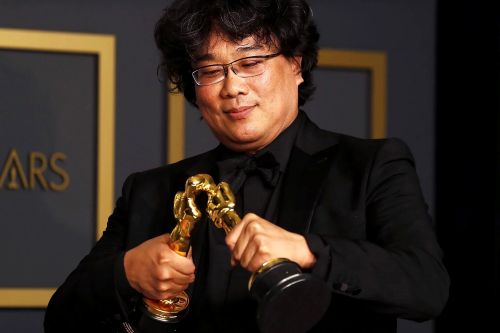Bong Joon-ho - A Retrospective

As I ready myself to see his most recent feature in a few hours (Mickey 17) I thought it would be a good time to look over his career in pictures.
One of my favorites of the new guard, the South Korean filmmaker's work -as wiki states- is "characterized by emphasis on social and class themes, genre-mixing, dark comedy, and sudden tone shifts", or what I call, the Joon-ho swerve, and I'll speak to that as I dig into each picture.
My first, like many in the States, was The Host, and I was immediately smitten, if a little knocked off my heels (it's the swerve). After that I sought out his other productions, each a winner in their own right. His peak moment was in 2019 with Parasite, and all those awards and accolades. That year's Oscars is still one of the best I've ever watched. It was upbeat, fun, the audience was enthused and fell love with the director, who charmed everyone who watched. And he seemed to be having a grand time (playfully having his Oscar's kiss as he posed for photographers). It was also historical - Parasite was the first South Korean film to be nominated for an Oscar, the first to win, and the first international picture winner to win overall Best Picture as well.
So, in no particular order, on to Bong!
Last edited by Captain Quint; 03-06-25 at 04:49 PM.